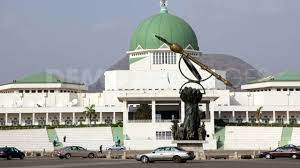The Socio-Economic Rights and Accountability Project (SERAP) yesterday asked the federal government to provide insights on the N500 billion it expended on the privatised power sector. The group, which also asked for information on the status of the 25- year national energy development plan, claimed “the identities of those who bought GENCOS and DISCOS have remained shrouded in secrecy.”
The inquiries were contained in a Freedom of Information letter, dated May 7, 2018 and sent to the Minister of Power, Works and Housing, Mr Babatunde Raji Fashola, SAN. In the letter, the organisation asked the minister to “to urgently provide information on specific details of spending on the privatisation of the electricity sector and the exact amount of postprivatisation spending to date, and to explain if such spending came from budgetary allocations or other sources.”
The organisation is also seeking “information on the status of implementation of the 25-year national energy development plan, and whether the Code of Ethics of the privatisation process which bars staff of the Bureau of Public Enterprises (BPE) and members of the National Council on Privatization (NCP) from buying shares in companies being privatised were deliberately flouted.”
The letter, signed by SERAP Executive Director, Adetokunbo Mumuni, noted that “since the privatisation of the power sector, the government has continued to use public resources to subsidise private entities. “The Goodluck Jonathan government reportedly spent over N400 billion on the power sector while the present government spent over N500 billion on the sector despite privatisation.
It is unclear if this spending is drawn from budgetary allocations and if these are loans to Generation Companies (GENCOS), Distribution Companies (DISCOS) and Transmission Company of Nigeria. “Assuming the funds are given as loans, SERAP would like to know whether appropriate guarantees have been provided to secure such loans, and whether such loans provide value for money for Nigerian tax-payers.”



